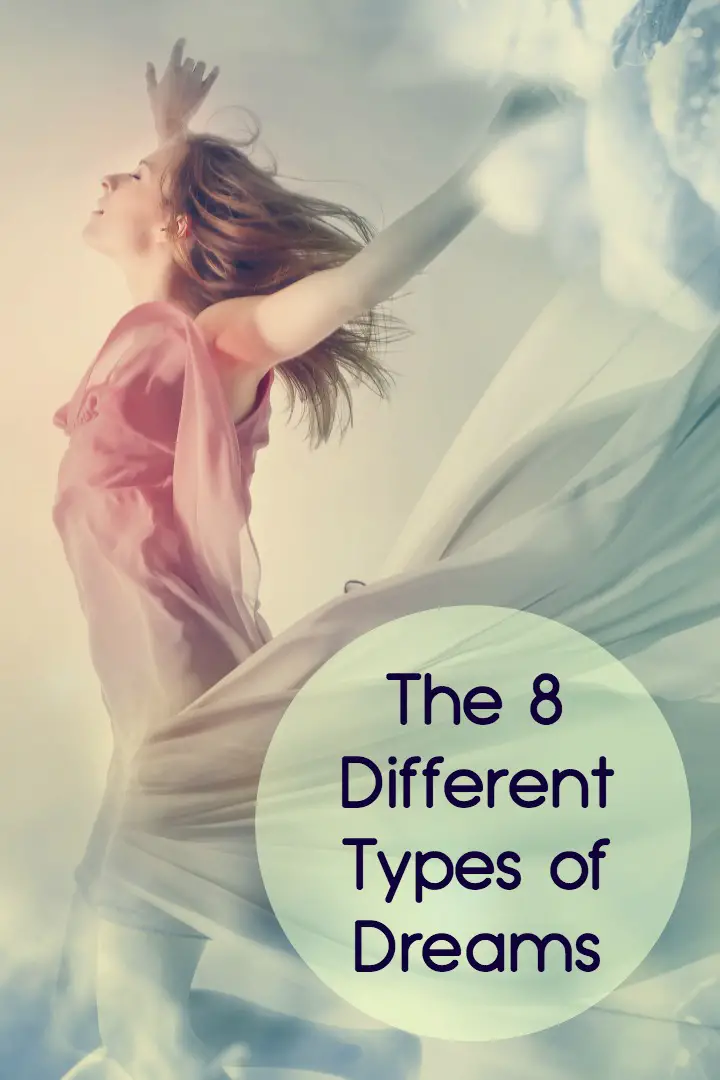1. Daydreams
Studies show that we all have the tendency to daydream an average of 70-120 minutes a day. Day dreaming is classified as a level of consciousness between sleep and wakefulness. It occurs during our waking hours when we let our imagination carry us away. As our minds begin to wander and our level of awareness decreases, we lose ourselves in our imagined scenario and fantasy.
2. Lucid Dreams
Lucid dreams occur when you realize you are dreaming. “Wait a second. This is only a dream!” Most dreamers wake themselves up once they realize that they are only dreaming. Other dreamers have cultivated the skill to remain in the lucid state of dreaming. They become an active participant in their own dreams, making decisions in their dreams and influencing the dream’s outcome without awakening.
 3. Nightmares
3. Nightmares
A nightmare is a disturbing dream that causes the dreamer to wake up feeling anxious and frightened. Nightmares may be a response to real life trauma and situations. This type of nightmare falls under a special category called Post-traumatic Stress Nightmare (PSN).
Nightmares may also occur because we have ignored or refused to accept a particular life situation. Research shows that most people who have regular nightmares have had a family history of psychiatric problems, bad drug experiences, people who have contemplated suicide, and/or rocky relationships.
Nightmares are an indication of a fear that needs to be acknowledged and confronted. It is a way for our subconscious to make up take notice. “Pay attention!” We’ll have more later in the book about nightmares and steps you can take to overcome them.
4. Recurring Dreams
Recurring dreams repeat themselves with little variation in story or theme. These dreams may be positive, but most often they are nightmarish in content. Dreams may recur because a conflict depicted in the dream remains unresolved or ignored. Once you have found a resolution to the problem, your recurring dreams will cease.
5. Healing Dreams
Healing dreams serve as messages for the dreamer in regards to their health. Many dream experts believe that dreams can help us avoid potential health problems and help us to heal when we are ill. Our bodies are able to communicate to us through our dreams to “tell” us that something is not quite right with our bodies even before any physical symptoms show up. Dreams of this nature may be telling the dreamer that he/she needs to go to the dentist or doctor
6. Prophetic Dreams
Prophetic dreams also referred to as precognitive or psychic dreams are dreams that seemingly foretell the future. One rational theory to explain this phenomenon is that our dreaming mind is able to piece together bits of information and observation that we normally overlook or that we do not seriously consider. In other words, our unconscious mind knows what is coming before we consciously piece together the same information
7. Signal Dreams
Signal dreams help you how to solve problems or make decisions in your waking life.
8. Epic Dreams
Epic dreams (or Great dreams) are so huge, so compelling, and so vivid that you cannot ignore them. The details of such dreams remain with you for years, as if your dreamt it last night. These dreams possess much beauty and contain many archetypal symbology. When you wake up from such a dream, you feel that you have discovered something profound or amazing about yourself or about the world. It feels like a life-changing experience.
What kind of dreams do you have?
FACT HACKER

No comments:
Post a Comment